CAFNR
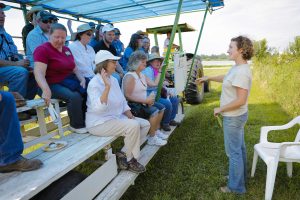
Nov. 13, 2020
Q&A With Hannah Hemmelgarn
What are your job duties/job responsibilities in the College of Agriculture, Food and Natural Resources? As the Center for Agroforestry’s outreach and education coordinator, I develop informational materials like the Agroforestry Podcast and monthly newsletters, and I organize and execute a number of events. The Agroforestry Academy, an annual week-long intensive train-the-trainer program, is one of our most recognized offerings. We’re also looking forward to the upcoming Agroforestry Symposium, which will take place January 28-30, 2021; this year’s theme is Community Health and Resilient Food Systems. How long have you worked in CAFNR? I’ve been in this position…
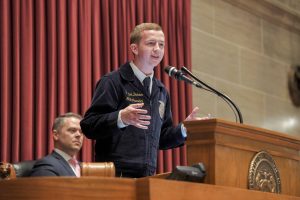
Nov. 12, 2020
Representing Missouri on the National Level
As a seventh grader, Paxton Dahmer traveled with his family to the University of Missouri to watch his older brother, Payton, receive his state FFA degree during the Missouri state FFA convention. While taking in the entire ceremony, Paxton set a lofty goal for himself – he was going to be a Missouri state FFA officer. “I’m a sixth-generation farmer and a third-generation FFA member,” Dahmer said. “Agriculture has been a staple of my family for years. I remember listening to my grandfather tell stories about FFA and what he was able to accomplish through the organization. Being an FFA…

Nov. 11, 2020
Going Global (Virtually)
Being adaptable is a major role for a director of study abroad at a university. Directors deal with program changes, passports that need updated at the last minute and students who miss their flights, among with many other important matters. Shanon Dickerson understands that serving as CAFNR director of study abroad requires her to think outside of the box quite often. That mindset has been even more important as international travel has been halted due to the COVID-19 pandemic. In an effort to offer CAFNR students an international experience from Columbia, Dickerson and the CAFNR Office of Academic Programs have…
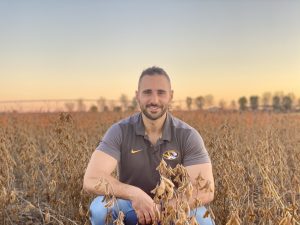
Nov. 6, 2020
Following in His Footsteps
As an undergraduate student studying soybean breeding at the University of Sao Paulo in Brazil, Caio Canella Vieira came across the name Pengyin Chen quite often during his studies. Chen became a major source of inspiration for Canella Vieira – and someone who he referenced throughout his undergraduate work. Little did Canella Vieira know that he would soon be working with the man he had read so much about. “My experience was like that of a little kid who looks up to a superstar athlete, and you want to be just like that athlete,” Canella Vieira said. “Reading about his…
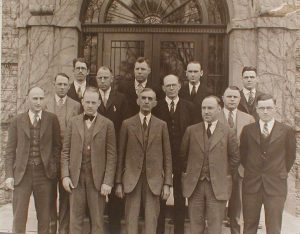
Oct. 28, 2020
Reflections: Mike Smith
It has been my privilege to serve on the faculty of the Division of Animal Sciences at the University of Missouri for 40 years. In particular, I owe a debt of gratitude to Dr. Bill Day, who I met as a PhD student at Texas A&M University. He was a member of a review team that evaluated the reproductive physiology program at A&M and he encouraged me to apply for a research/teaching position in beef cattle reproduction in the Department of Animal Husbandry. At the time, I questioned whether I was ready to initiate an independent research program, but Bill…
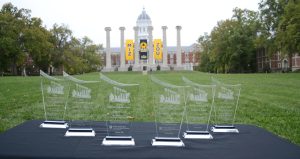
Oct. 27, 2020
CAFNR Proud, Column Strong
The College of Agriculture, Food and Natural Resources has honored the 2020 recipients of the CAFNR Column Award for Distinguished Alumni. Although the recognition process looks different for this year, CAFNR’s outstanding alumni were still celebrated for their notable accomplishments. The Column Awards are the highest honor given by the College to recognize outstanding achievements of its accomplished alumni. The awardees represent graduates from each of CAFNR’s six divisions, reflecting the six historic columns at the University of Missouri. Animal Sciences Eldon Cole // MS Animal Husbandry ’63, BS Agriculture ’62 Eldon Cole has been a long-time presence in southwest…
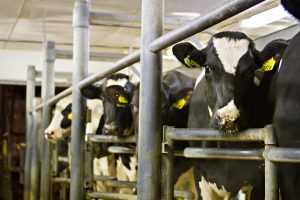
Oct. 27, 2020
A Full Farm View
When Nichole Anderson joined the University of Missouri College of Agriculture, Food and Natural Resources (CAFNR) Division of Animal Sciences in the fall of 2018, she was focused on bringing more technology into the classroom. With the help of a United States Department of Agriculture (USDA) National Institute of Food and Agriculture (NIFA) grant, Anderson is taking a big step in that direction. The grant, worth more than $270,000, is focused on using virtual reality to increase student understanding and interest in farm animal welfare. The four virtual reality modules that the grant will help develop will focus on operating,…
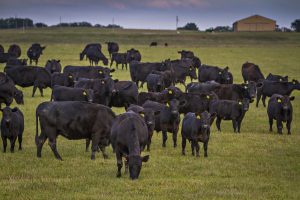
Oct. 8, 2020
Division of Animal Sciences Receive 2020 Research Equipment Grant
A trio of researchers in the University of Missouri College of Agriculture, Food and Natural Resources (CAFNR) Division of Animal Sciences recently received a 2020 Research Equipment Grant from C-Lock Inc. to purchase one GreenFeed Pasture System, which measures the amount of methane, carbon dioxide, oxygen, hydrogen and hydrogen sulfide gases released by cattle. Jared Decker, associate professor and state beef Extension specialist, Eric Bailey, assistant professor and state beef Extension specialist, and Derek Brake, assistant professor, are the trio leading the project for CAFNR. Their focus will be on using GreenFeed for the prediction of cow efficiency genetic…
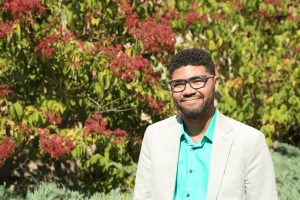
Oct. 8, 2020
Q&A With Tavair Tapp
What are your job duties/job responsibilities in the College of Agriculture, Food and Natural Resources? I am the office support assistant for the Office of Academic Programs within the School of Natural Resources. My responsibilities include: helping get grad plans approved and submitted, keeping students informed of job/internship opportunities, and I do the schedule changes for the courses offered in the upcoming semesters. I am also a member of our social media team, helping operate SNR’s Facebook and Instagram. How long have you worked in CAFNR? I happily rejoined the University of Missouri family in April 2020. What do you…
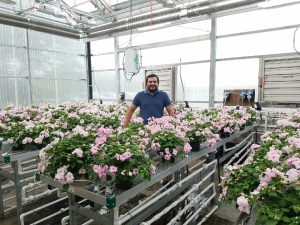
Oct. 2, 2020
Cultivating Inclusivity
By population, the United States is the second-largest Spanish-speaking country in the world, according to the U.S. Census Bureau. Counting both bilingual and native speakers of Spanish, the U.S. has more people who can speak Spanish than Spain itself. How do MU Extension specialists make sure they serve Missourians who speak Spanish? “I first started doing a home gardening webinar series at the beginning of the year because of COVID-19 and potential food supply shortages,” said Juan Cabrera-Garcia, an MU Agriculture and Environment Extension horticulture specialist in southeastern Missouri. Amaya Carrasco, a St. Louis resident with experience in urban agriculture,…